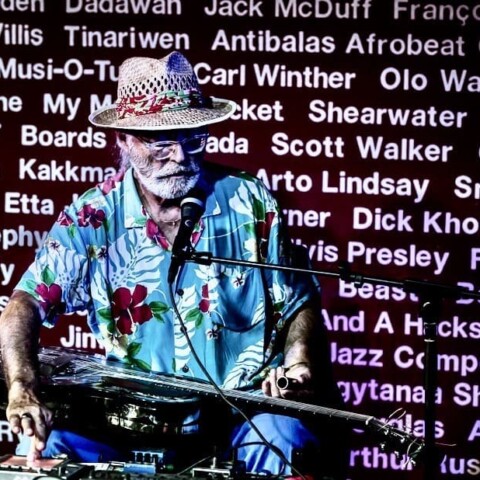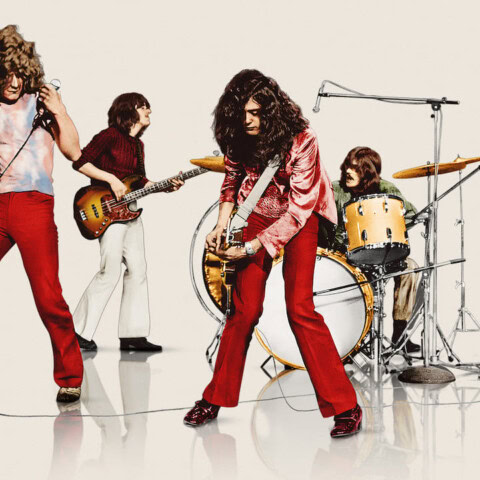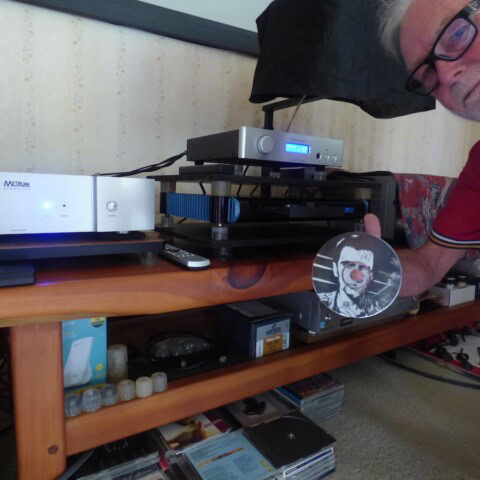When GARY STEEL spoke to UB40’s Astro 40 years ago the hitmaking band still described themselves as anarchists.
 UB40 know it. The music industry is full of ruthless executives keen to skim off the cream of genius, throw it away, and dilute the milk to mass taste.
UB40 know it. The music industry is full of ruthless executives keen to skim off the cream of genius, throw it away, and dilute the milk to mass taste.
They know the big record companies never change their crazy search for artists to satisfy LCD (Lowest Common Denominator) audiences require homogenising any artistry beyond recognition.
Support Witchdoctor’s ongoing mission to bring a wealth of new and historic music interviews, features and reviews to you this month (and all year round) as well as coverage of quality brand new, contemporary NZ and international music. Witchdoctor, entertainment for grownups. Your one-off (or monthly) $5 or $10 donation will support Witchdoctor.co.nz. and help us keep producing quality content. It’s really easy to donate, just click the ‘Become a supporter’ button below.
And UB40 take pride in the fact that they are a shining exception to the rule.
Right from the word “go” this multi-racial British band which took its name from the unemployment forms – they were unemployed at the time – experienced subtle discrimination.
 Dreadlocked percussionist Astro explains:
Dreadlocked percussionist Astro explains:
“Our first single – we know from record sales alone ‘Food For Thought’ should have been at Number 1. We looked through all the record business record sales and the band that was at Number 1 was selling 24,000 copies that week. And we were selling 32,000. We was at Number 4, and they was at Number 1.”
Astro alleges there are “fiddles” in the pop charts “which everybody is aware of happening.”
“It’s the pride of the major record companies,” he contends. “They couldn’t allow an independent record to sit on the Number 1 spot. It would make them look a joke.”
 In New Zealand, the record sat at the Number 1 spot for weeks, but only after the record buyers had put it there – with no help from radio which would not play it initially.
In New Zealand, the record sat at the Number 1 spot for weeks, but only after the record buyers had put it there – with no help from radio which would not play it initially.
UB40 are an anachronism. They have won the hearts of many teenagers to old age pensioners with their relaxing, yearning, tuneful reggae. They have earned massive success and wide appeal in several countries.
On the other hand, their message is militant and radical. As another UB40 member [Norman] Hassan says, the band are “left of left. You could go as far as to say that at least half the band are anarchists.”
During their 1981 tour of New Zealand, drummer Jim Brown told rock magazine In Touch that if they had been here during the Springbok tour “we would have been in the frontlines” of the protests.
 Surprisingly, UB40 do not consider themselves a political band.
Surprisingly, UB40 do not consider themselves a political band.
“We never set out to be a political band. It’s just the environment we grew up in, you automatically become socially aware of things around you. Those things we see were more relevant to us and we thought would be more relevant to other people.
“So we’d rather sing about things like social injustices – things that NEED to be told – than singing love songs which have nothing to do with anybody but yourself.”
This is a band often derided by the savage British music papers. If a socially aware band are seen to put a foot wrong, then it’s time for a written mauling.
UB40 are not only committed to doing things their own way – with integrity – they’re also determined to be successful on their own terms. But realistic, says Astro.
“Once you start taking on this superstar trip you’re in serious danger because you start cutting yourself off from the people you’ve known all your life.
“What people fail to realise is that you’re only in this business for a short space of time.”
When UB40 began, Astro gave the band five years. This is the beginning of their fourth year.
“Back in England at the moment, we’re all building a studio. We bought up an old meat warehouse. We’ve got offices, we’ve almost got our eight-track studio, and we’ve started 16 and 24-track studios. We’ve got all the room to do it… we’ve got some massive fridges.
“We are our own record company now, and we’re starting to think about signing up other acts that we consider to be good, offer them free demos.”
Astro says of this extra-mural business: “It’s like trying to take care of our future interests now, instead of leaving it till the band actually collapses. Hopefully, when the band does fold we’ll still be able to make a living.”
- This story originally appeared in The NZ Times on February 22, 1983. RIP Astro.














